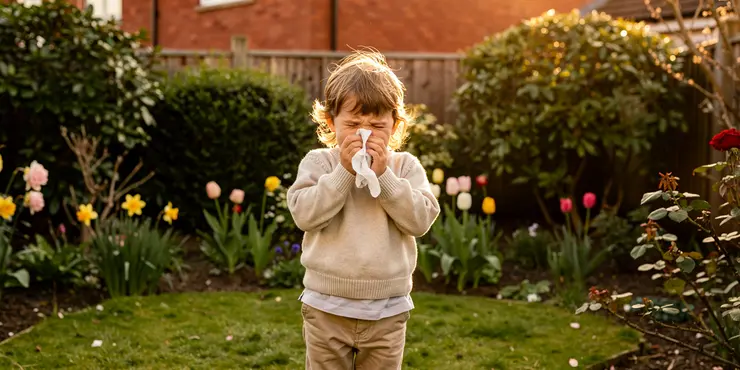
Find Help
More Items From Ergsy search
-
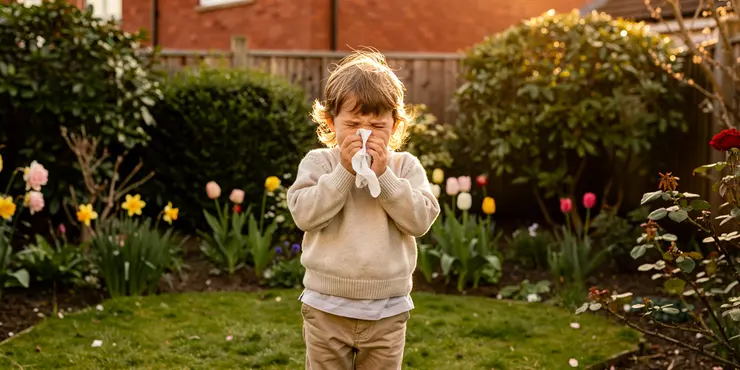
Can children develop hay fever?
Relevance: 100%
-
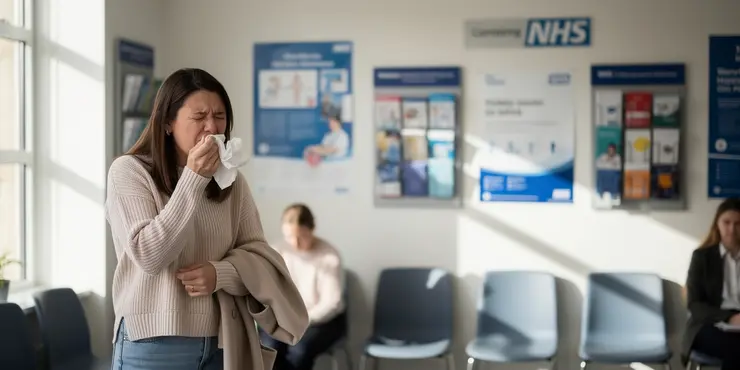
What is hay fever?
Relevance: 86%
-

Hay fever advice | NHS
Relevance: 81%
-
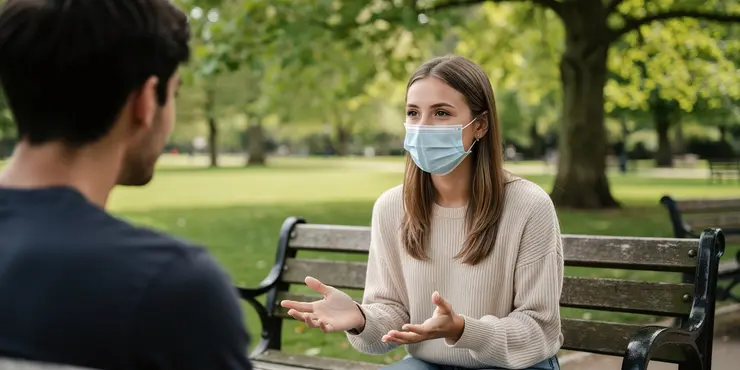
Do masks help with hay fever?
Relevance: 80%
-
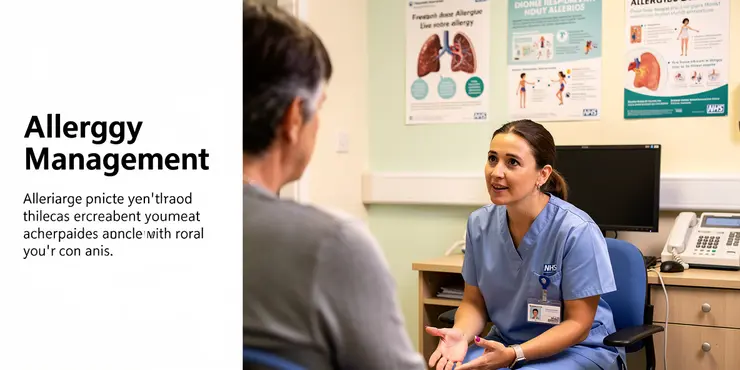
Is there a link between hay fever and asthma?
Relevance: 79%
-
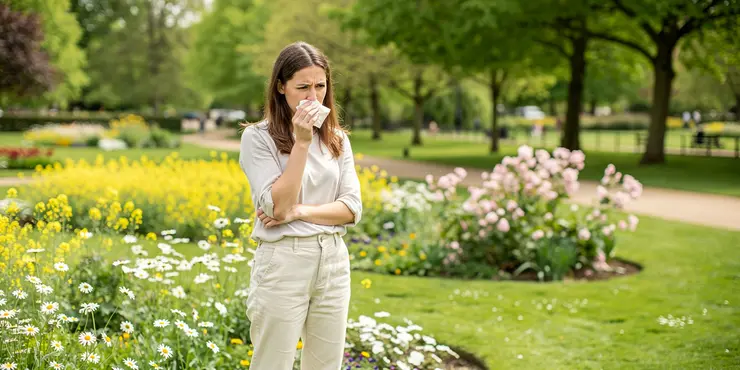
Are some people more prone to hay fever?
Relevance: 78%
-
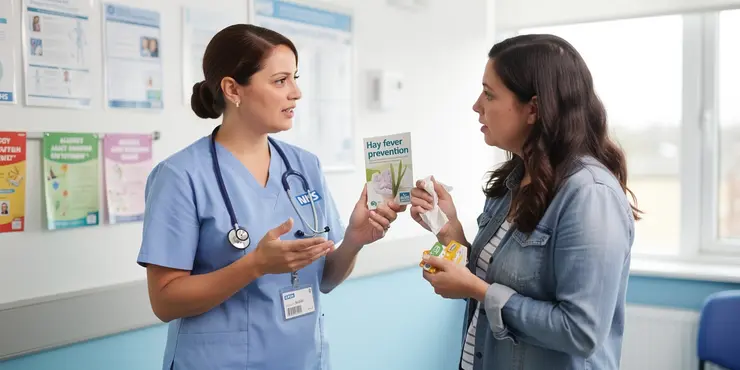
Can hay fever be prevented?
Relevance: 78%
-
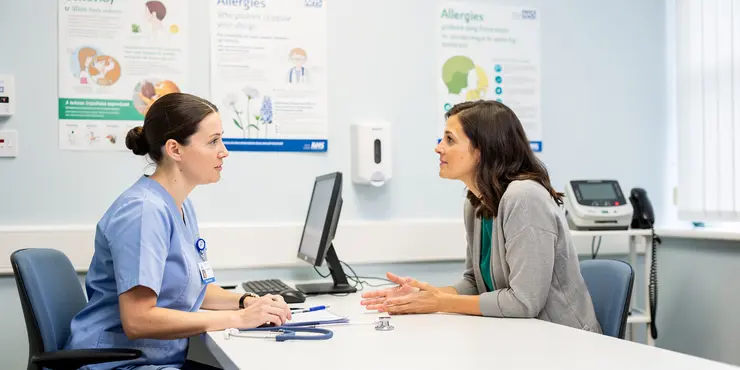
What are the common symptoms of hay fever?
Relevance: 77%
-
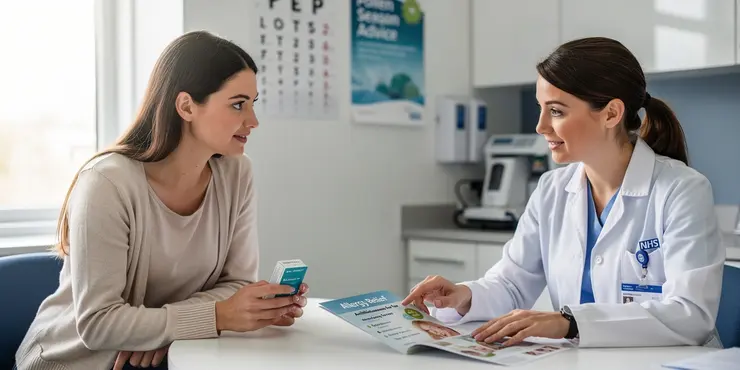
Antihistamines how they work with hay fever
Relevance: 76%
-
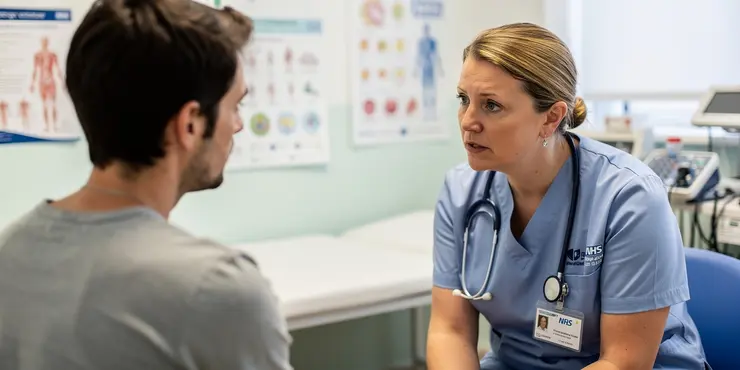
Can hay fever occur year-round?
Relevance: 76%
-
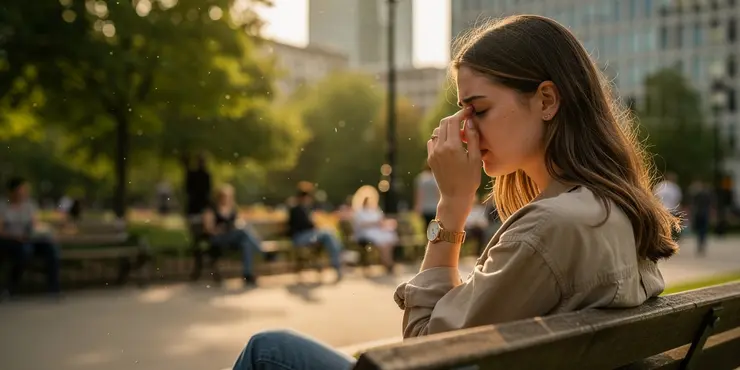
Is hay fever more common in urban areas?
Relevance: 76%
-
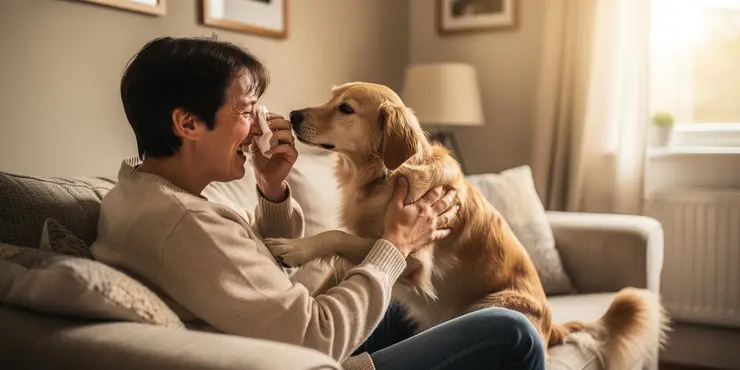
Do pets contribute to hay fever?
Relevance: 74%
-
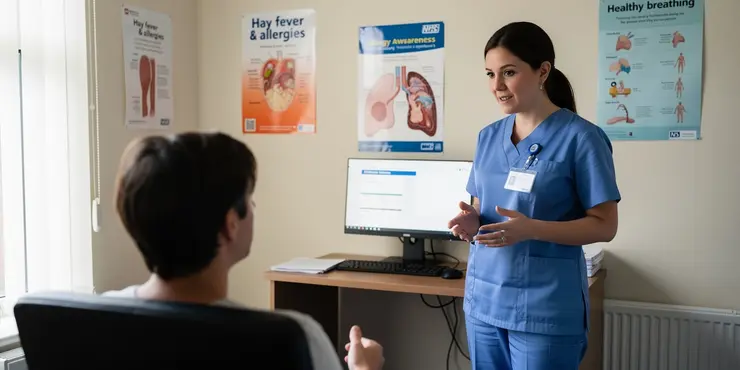
Do all plants produce pollen that causes hay fever?
Relevance: 74%
-
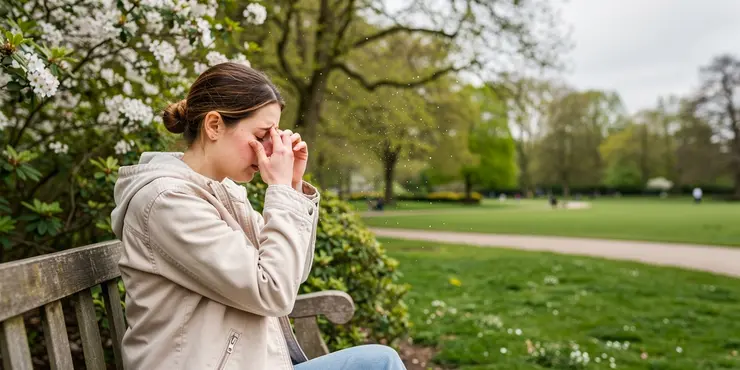
How does pollen affect people with hay fever?
Relevance: 74%
-

Can diet influence hay fever symptoms?
Relevance: 74%
-
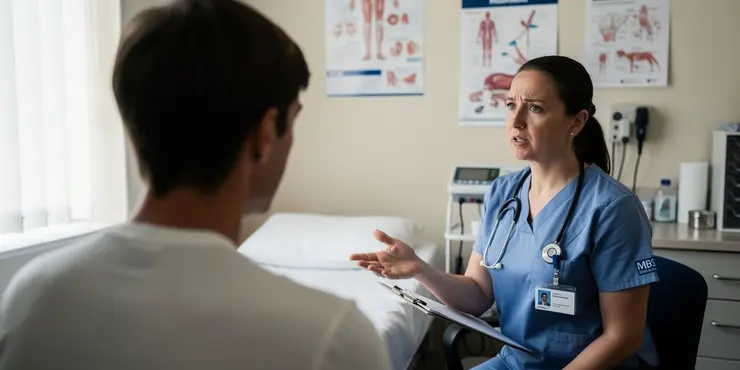
Can hay fever symptoms mimic other conditions?
Relevance: 72%
-
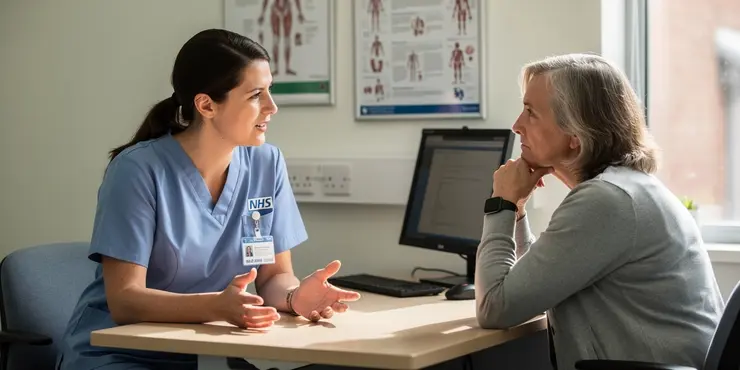
Why are experts warning of rising hay fever cases?
Relevance: 71%
-
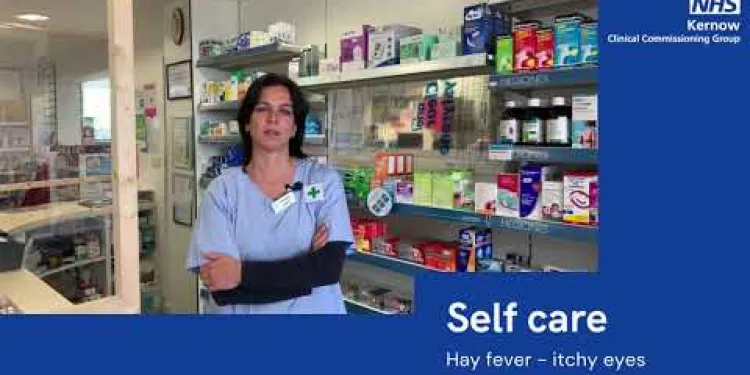
Self care - hay fever itchy eyes
Relevance: 71%
-
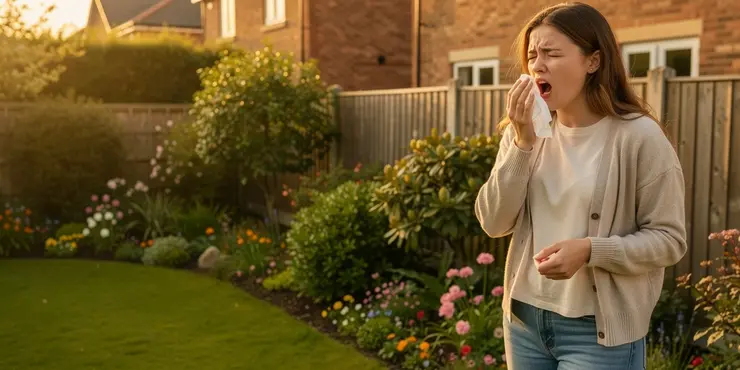
Experts Warn of Rising Hay Fever Cases as Pollen Counts Surge
Relevance: 70%
-
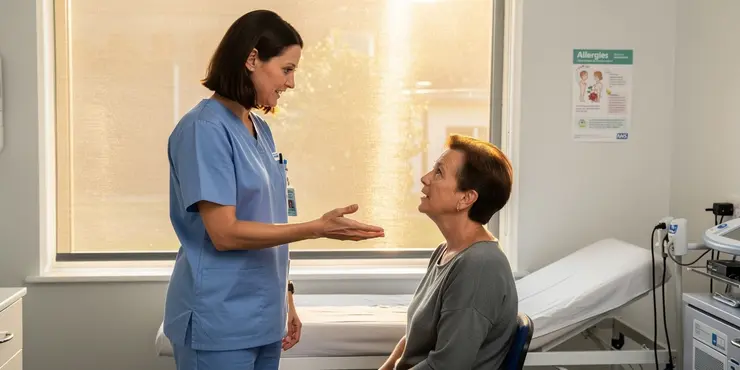
Can mosquito screens help reduce hay fever symptoms?
Relevance: 64%
-
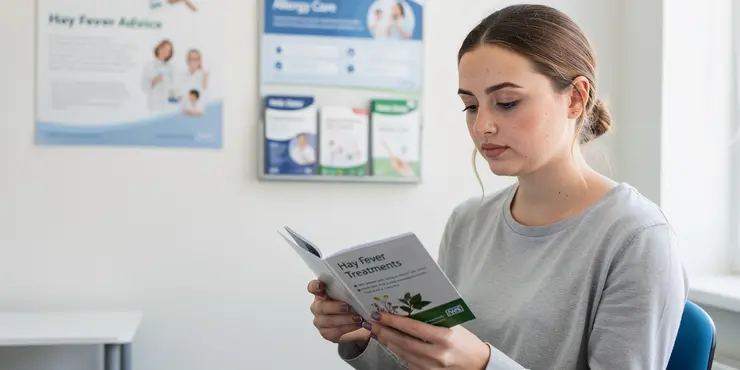
Are there any treatments for hay fever?
Relevance: 57%
-
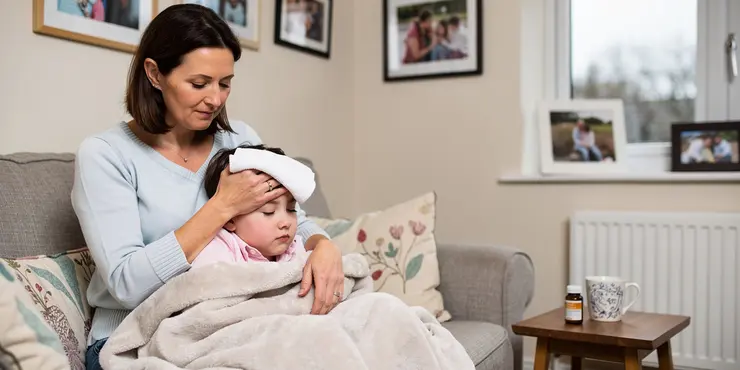
Which medication should be avoided for children with fevers?
Relevance: 53%
-
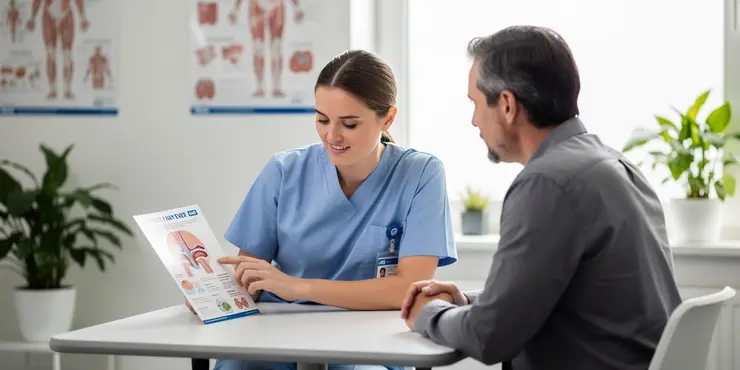
How long does a typical hay fever season last?
Relevance: 49%
-
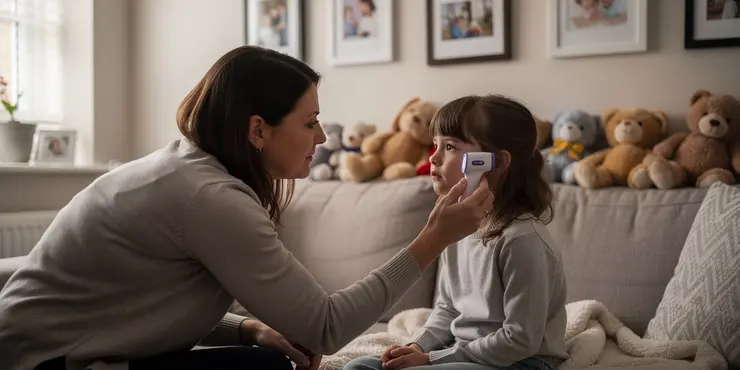
Caring for a child with fever | NHS
Relevance: 40%
-

Can dengue fever be contracted in the UK?
Relevance: 33%
-
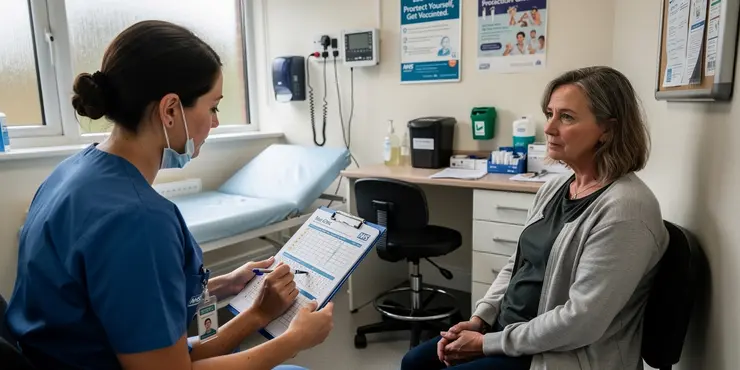
Is there a risk of yellow fever being spread by mosquitoes in the UK?
Relevance: 33%
-
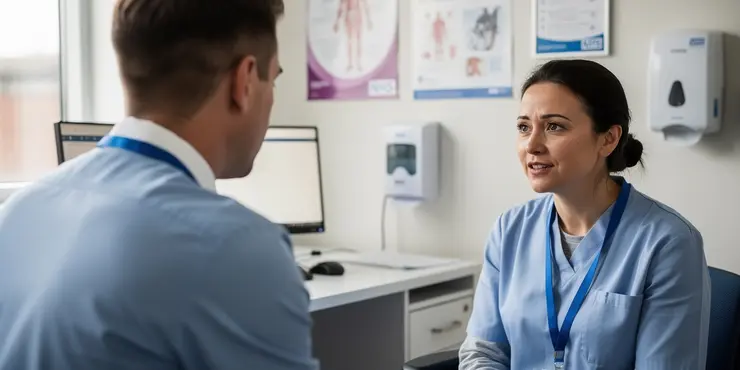
How to treat glandular fever | NHS
Relevance: 32%
-
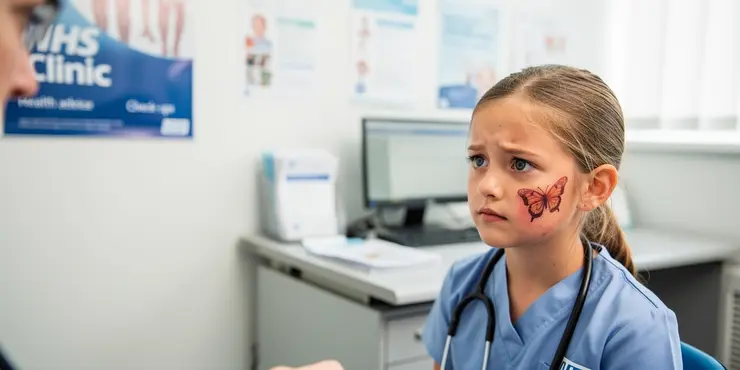
What are the common symptoms of lupus in children?
Relevance: 32%
-
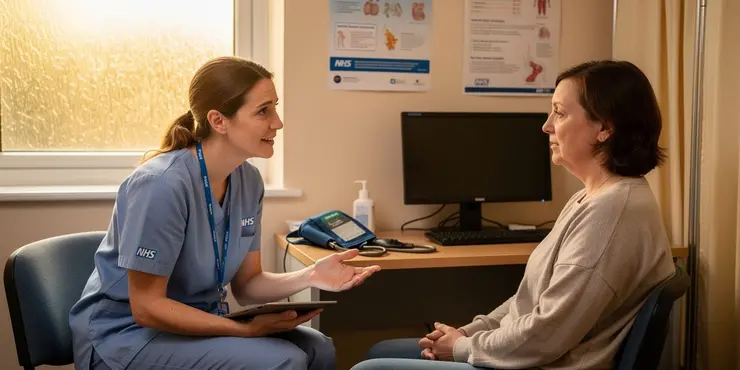
What is Dengue Fever?
Relevance: 31%
-
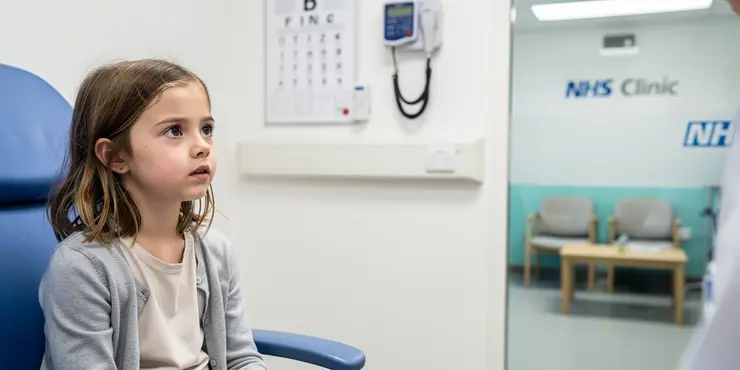
What is lupus in children?
Relevance: 31%
-
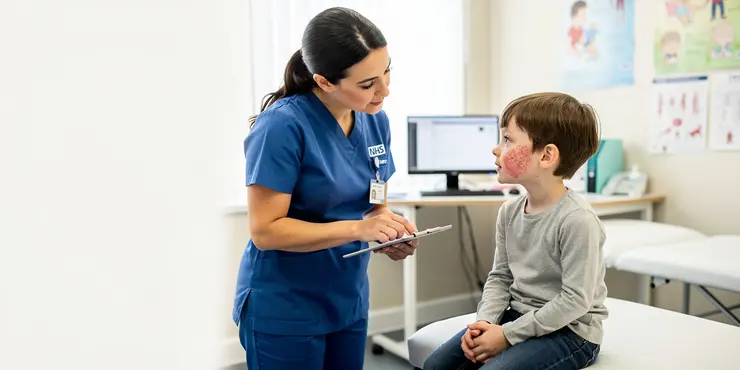
Lupus in children | NHS
Relevance: 31%
-
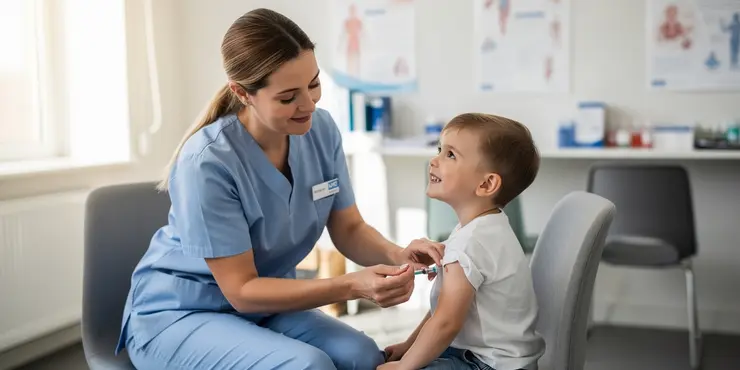
Children's Vaccination Schedule
Relevance: 27%
-
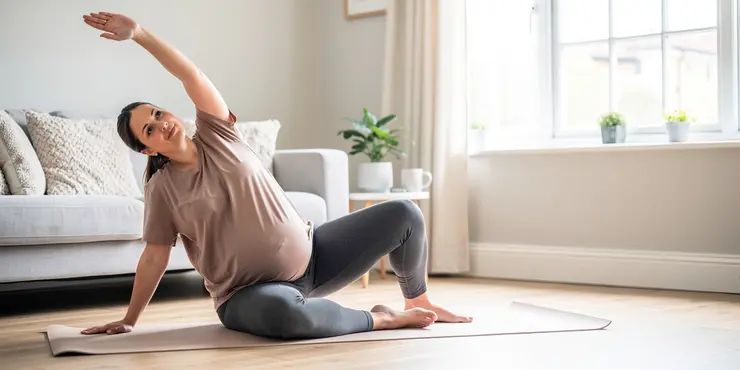
Can lifestyle changes help manage pain and fever during pregnancy?
Relevance: 27%
-
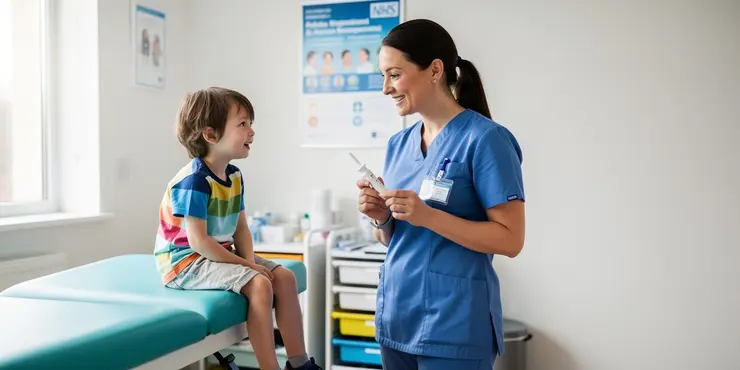
Can children receive the flu vaccine as a nasal spray?
Relevance: 27%
-
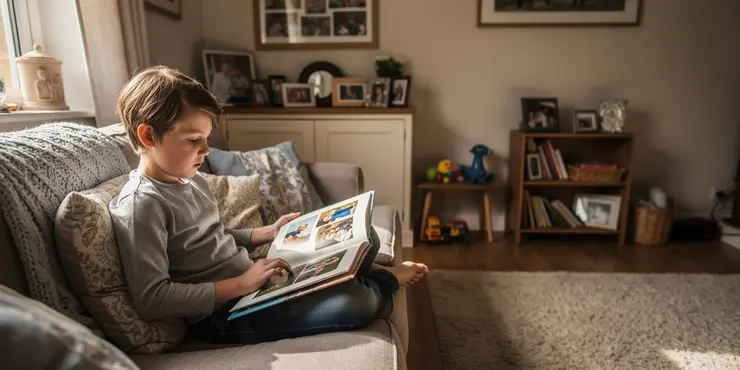
What causes lupus in children?
Relevance: 26%
-
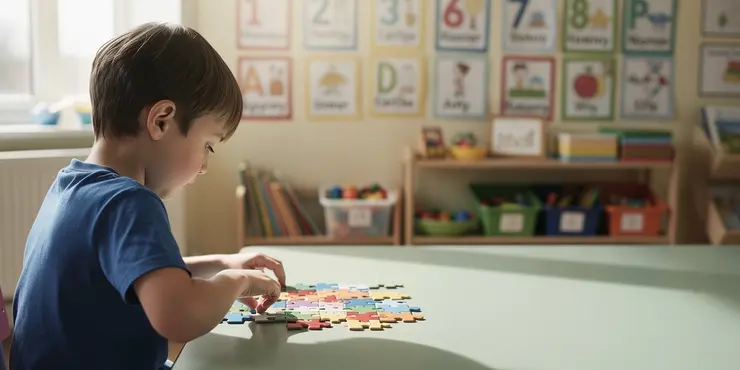
Who are SEND children?
Relevance: 26%
-
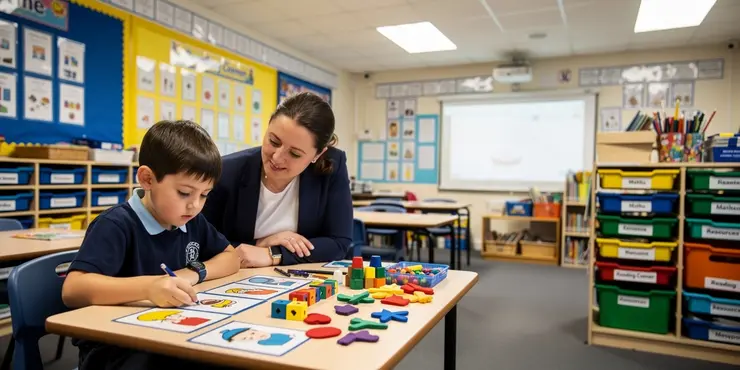
What are SEND children?
Relevance: 26%
-
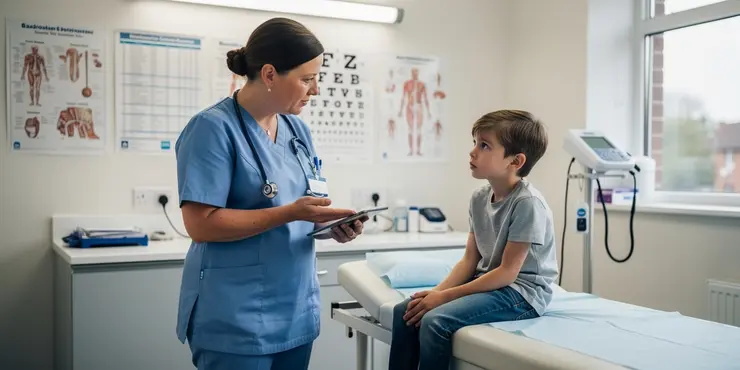
Is Baxdrostat suitable for children?
Relevance: 26%
-
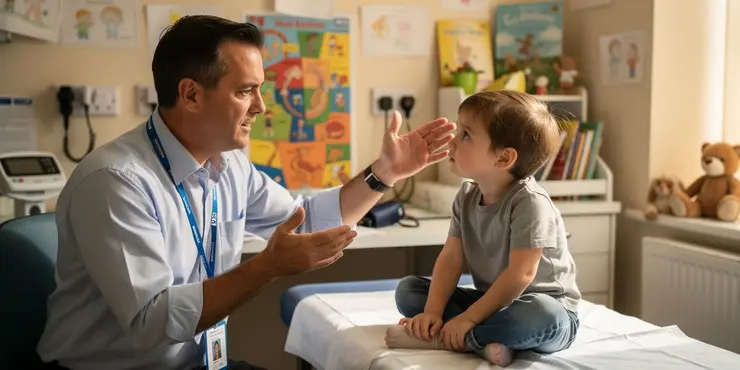
How is lupus diagnosed in children?
Relevance: 25%
-
Can Dengue fever be transmitted through blood transfusions?
Relevance: 25%
Can Children Develop Hay Fever?
In the UK, hay fever, also known as seasonal allergic rhinitis, is a common allergic condition that occurs when the body's immune system overreacts to airborne allergens such as pollen. Though it is commonly associated with adults, children can indeed develop hay fever. The prevalence of this condition in children has been increasing, raising the need for awareness and understanding among parents and caregivers.
Causes of Hay Fever in Children
Hay fever in children is triggered by allergens like pollen from trees, grasses, and weeds. These airborne particles are more prevalent during certain times of the year, particularly in spring and summer. When a child with a sensitized immune system is exposed to these allergens, their body mistakenly identifies them as harmful, prompting an allergic reaction that results in the symptoms of hay fever.
Symptoms to Watch For
Children with hay fever may exhibit a range of symptoms. Common signs include frequent sneezing, a blocked or runny nose, itchy eyes, nose, or throat, and watery eyes. These symptoms can sometimes be confused with the common cold, but hay fever symptoms tend to persist over a longer period and are often seasonal. In some cases, children may experience additional symptoms such as fatigue or even headaches, particularly if their sleep is disrupted by nasal congestion.
Age and Development of Hay Fever
While hay fever can develop at any age, it is less common in children under the age of three. It is more likely to manifest in children as they reach school age. As the child's immune system becomes more established, it may start to respond to environmental allergens, leading to hay fever. Genetic factors also play a role; children with a family history of allergies are more prone to developing hay fever.
Managing Hay Fever in Children
Managing hay fever in children involves a combination of avoiding known allergens and treating the symptoms. Parents can reduce exposure to pollen by keeping windows closed during high pollen seasons, using pollen filters in air vents, and encouraging children to wash their hands and face after playing outside. Pharmacological treatments such as antihistamines can be effective in managing symptoms. Always consult with a healthcare professional before giving medications to children.
When to Seek Medical Advice
If a child’s hay fever symptoms are severe or persist, it is advisable to consult a healthcare professional. They can offer guidance on effective treatment options and may suggest allergy testing to identify specific triggers. In some cases, a referral to a specialist, such as an allergist, might be necessary. Taking these steps can help improve the child’s quality of life by managing symptoms effectively and reducing their impact on daily activities.
Can Children Get Hay Fever?
In the UK, hay fever is also called seasonal allergies. It happens when the body reacts too much to things in the air, like pollen. Adults often have hay fever, but children can get it too. More kids are getting hay fever now, so parents and caregivers need to know about it.
What Causes Hay Fever in Children?
Hay fever in kids is caused by things like pollen from trees, grass, and weeds. There is more pollen in the air in spring and summer. When a child with hay fever breathes in pollen, their body thinks it is bad and reacts to it. This reaction causes hay fever symptoms.
Symptoms to Look For
Kids with hay fever can have many symptoms. They might sneeze a lot, have a stuffy or runny nose, and itchy eyes, nose, or throat. Their eyes might water too. These signs can be like a cold, but hay fever lasts longer and usually happens in certain seasons. Sometimes, kids might feel extra tired or get headaches if they can't sleep well because of a stuffy nose.
When Do Kids Get Hay Fever?
Kids can get hay fever at any age, but it's not common in kids under three. It's more likely to start when kids are old enough to go to school. As their immune system grows, it might start to react to things like pollen. If parents have allergies, kids might get hay fever too.
How to Help Kids with Hay Fever
Helping kids with hay fever means keeping them away from pollen and treating their symptoms. Parents can keep windows closed during high pollen times, use special filters in air vents, and have kids wash their hands and face after being outside. Medicines like antihistamines can help with symptoms but always talk to a doctor before giving medicine to a child.
When to Get Medical Help
If a child's hay fever is very bad or doesn't go away, see a doctor. Doctors can help find the best way to treat hay fever and might suggest tests to find out what causes it. Sometimes, a doctor might send you to see a specialist who knows more about allergies. This help can make a child's life better by controlling hay fever and letting them enjoy daily activities.
Frequently Asked Questions
What is hay fever?
Hay fever, also known as allergic rhinitis, is an allergic response to airborne substances, such as pollen, that can cause sneezing, itching, and other symptoms.
Can children develop hay fever?
Yes, children can develop hay fever. It can affect both children and adults.
At what age can children start showing symptoms of hay fever?
Children can start showing symptoms of hay fever as early as 3 years old, although it is more common in older children.
What are the common symptoms of hay fever in children?
Common symptoms include sneezing, a runny or blocked nose, itchy eyes, and throat irritation.
How is hay fever diagnosed in children?
Hay fever is usually diagnosed based on symptoms and medical history. A doctor may perform allergy tests to confirm.
What are the common triggers for hay fever in children?
Common triggers include pollen from trees, grasses, and weeds, as well as exposure to dust mites and pet dander.
Are there any treatments available for children with hay fever?
Yes, treatments include antihistamines, nasal sprays, and eye drops. It's best to consult a pediatrician for the appropriate treatment.
Can hay fever affect a child's school performance?
Yes, symptoms like sneezing and itchy eyes can affect concentration and lead to decreased performance at school.
How long does hay fever last in children?
Hay fever can occur during specific seasons when certain pollens are in the air. Symptoms last as long as the child is exposed to the allergens.
Can hay fever lead to other complications in children?
Yes, it can lead to complications such as sinusitis, ear infections, or asthma exacerbations.
Are there any lifestyle changes that can help manage hay fever in children?
Yes, keeping windows closed during high pollen counts, using air purifiers, and bathing after outdoor play can help reduce symptoms.
Is hay fever hereditary?
There is a genetic component, as children with parents who have allergies are more likely to develop hay fever.
How can I help my child avoid hay fever triggers?
Avoid outdoor activities during peak pollen times, keep the home environment clean, and consult with a doctor for specific advice.
Can diet impact a child's hay fever symptoms?
While diet isn't a direct cause, eating a balanced diet can support the immune system. Some believe certain foods may help reduce symptoms, but this varies.
Do over-the-counter medications for hay fever work for children?
Many over-the-counter medications are safe for children, but it's important to follow dosage instructions and consult a doctor if uncertain.
Can a child outgrow hay fever?
Some children may outgrow hay fever, while others may continue to experience symptoms into adulthood.
Is it safe for children to take allergy shots for hay fever?
Allergy shots, or immunotherapy, can be used in children and may help reduce symptoms over time. Consult with a specialist for suitability.
What role does the environment play in hay fever symptoms?
Environmental factors such as pollution and climate changes can exacerbate hay fever symptoms in children.
Can nasal saline rinses help manage hay fever symptoms in children?
Nasal saline rinses can help clear pollen and reduce nasal symptoms in children.
Is there a connection between hay fever and other allergic conditions?
Yes, children with hay fever may be more prone to other allergic conditions, such as eczema and asthma.
What is hay fever?
Hay fever is when flowers and plants make your nose feel itchy, runny, and sneezy. It can also make your eyes itchy and watery. This happens in seasons when plants make pollen, like spring and summer.
If you need help, you can:
- Use tissues to blow your nose.
- Wear sunglasses to protect your eyes from pollen.
- Talk to a doctor if you feel very bad.
Hay fever is also called allergic rhinitis. It happens when you are allergic to things in the air, like pollen. This can make you sneeze and feel itchy.
Can kids get hay fever?
Yes, kids can get hay fever. Hay fever is when your nose gets itchy or runny because of things like pollen from flowers.
Kids might also sneeze a lot. Their eyes could feel itchy or watery too.
If you think you have hay fever, talk to an adult or a doctor. They can help you feel better.
Using tissues and washing your hands can also help. Try wearing sunglasses outside to keep pollen away from your eyes.
Yes, kids can get hay fever. Both kids and grown-ups can have it.
When do children start to get hay fever symptoms?
Children can start to have hay fever symptoms when they are very young. Some might have it when they are about 3 years old, but it can happen at any age.
Look for sneezing, runny nose, and itchy eyes. If you think your child has hay fever, talk to a doctor. They can help.
Use tissues for nose and cool water on eyes for comfort. Try to stay indoors when pollen is high.
Children can start getting hay fever when they are as young as 3 years old. But, it usually happens in older kids.
What are signs of hay fever in kids?
Common symptoms are sneezing, a runny or stuffy nose, eyes that itch, and a scratchy throat.
How do doctors find out if kids have hay fever?
Hay fever is when you sneeze and your nose feels itchy because of things like pollen. A doctor can tell if you have hay fever by asking about the times you feel bad and looking at your health history. They might also do some simple tests to see if you are allergic to something.
What makes children get hay fever?
Some children get hay fever. This means they sneeze, have a runny nose, or itchy eyes.
Here are things that can make hay fever happen:
- Pollen: This comes from trees, grass, and flowers.
- Dust mites: Tiny bugs that live in dust.
- Pet hair: Like cat or dog fur.
- Mold: A type of fungus that grows in damp places.
If a child has hay fever, they might use tissues a lot or need help from medicine. It can help to stay inside when pollen is high or keep windows closed.
Things that can cause allergies are pollen from trees, grass, and weeds. Dust mites and pet fur can also make allergies worse.
Can doctors help children with hay fever?
Yes, there are treatments you can try. These include pills called antihistamines, sprays for your nose, and drops for your eyes. It is a good idea to talk to a children's doctor to find the best treatment.
Can hay fever make it hard for a child to do well in school?
Hay fever can cause symptoms like sneezing, a runny nose, and itchy eyes. This can make it hard for a child to focus in school. A child might feel tired if they do not sleep well because of hay fever.
Here are some things that can help:
- Medicine: Ask a doctor about medicine that can help.
- Clean your hands and face: Wash hands and face often to remove pollen.
- Stay indoors: Stay inside when there is a lot of pollen outside.
Yes, things like sneezing and itchy eyes can make it hard to focus and can hurt how well you do at school.
How long does hay fever last in children?
Hay fever is when a child sneezes a lot or has a runny nose because of pollen. Hay fever comes when flowers start blooming.
Hay fever can last for weeks, but it often stops when the flowers are done blooming. It can happen in spring or summer.
Here's how to help your child:
- Keep windows closed to stop pollen coming inside.
- Give your child sunglasses to protect their eyes.
- Wipe their face with a wet cloth to remove pollen.
Hay fever happens during certain times of the year. This is when there is pollen in the air. A child will have symptoms for as long as they are around the pollen.
Can hay fever cause other problems in children?
Hay fever can sometimes cause other problems for kids. Here is how it can happen: - **Breathing Trouble**: Sometimes, hay fever makes it hard to breathe. - **Ear Problems**: Hay fever can make ears feel full or block them. - **Not Sleeping Well**: Kids with hay fever might not sleep well because they are uncomfortable. **Tips to Help Kids with Hay Fever**: - Use tissues to blow their nose. - Ask the doctor for medicine. - Keep windows closed to stop pollen from coming inside. - Help them wash their face to remove pollen. These tips can make kids feel better.Yes, it can cause problems like a stuffy nose, sore ears, or make asthma worse.
Can changing how we live help kids with hay fever?
Yes! There are things you can do to help.
Here are some ideas:
- Close windows when the pollen count is high.
- Use sunglasses when outside to protect eyes.
- Have your child shower and change clothes after being outside.
- Use allergy covers on pillows and mattresses.
- Wash bedding often in hot water.
Also, using air purifiers and keeping an eye on pollen forecasts can be helpful tools.
Yes, keeping windows shut when there is a lot of pollen in the air, using machines to clean the air, and taking a bath after playing outside can help you feel better.
Can you get hay fever from your parents?
Some people get hay fever because their parents have it too. This means hay fever can run in families. If your mom or dad has hay fever, you might have it too.
To help with reading, you can:
- Listen to the words being read out loud.
- Ask someone to explain it to you.
- Look at pictures about hay fever.
- Use a dictionary to find simple meanings of hard words.
Hay fever can run in families. This means if your mom or dad has allergies, you might have hay fever too.
How can I help my child stay away from hay fever?
Hay fever can make your child sneeze and feel itchy. Here are some simple ways to help:
- Keep windows closed when there is a lot of pollen outside.
- Ask your child to wash their face and hands after playing outside.
- Dry clothes inside to stop pollen from sticking to them.
- Use an app or website to check pollen levels before going out.
These steps can help your child feel better. If hay fever is still a problem, talk to a doctor.
Try to stay inside when there is a lot of pollen outside. Keep your home clean, and talk to a doctor for more help.
Can what a child eats change their hay fever symptoms?
Eating healthy food helps your body stay strong. Some foods might make you feel better, but it is different for everyone.
Do hay fever medicines you can buy in a shop help kids?
Some medicines you can buy in a store are safe for kids. But make sure you always follow the instructions on how much to give. If you are not sure, ask a doctor.
Can a child stop having hay fever?
Sometimes children can stop having hay fever as they get older. But some children might have it when they grow up. Everyone is different.
Here are some ways to help with hay fever:
- Wear sunglasses to keep pollen out of your eyes.
- Stay inside when there is lots of pollen outside.
- Keep windows closed to stop pollen from coming inside.
- Wash your face and hands when coming in from outside.
If the hay fever is very bad, it can help to talk to a doctor.
Some kids might stop having hay fever as they get older, but others might still have it when they are grown up.
Can kids get allergy shots for hay fever safely?
Allergy shots can help kids feel better over time. They get these shots to make their allergies less strong. Talk to a doctor to see if they are a good idea for your child.
How does the environment affect hay fever symptoms?
The environment is everything around us, like air, trees, and weather. It can make hay fever symptoms worse or better. Hay fever symptoms can be a runny nose, itchy eyes, and sneezing.
The air can have tiny things called pollen. Trees, grass, and flowers make pollen. When there is more pollen in the air, hay fever symptoms can get worse. This often happens in spring and summer.
Cold or wet weather can help symptoms get better. Rain can wash pollen out of the air. This means less pollen to breathe in.
Stay inside when there is a lot of pollen in the air. Check a pollen calendar or app to know the pollen level. Wear sunglasses to keep pollen out of your eyes.
Things like dirty air and changes in the weather can make hay fever worse for children.
Can washing the nose with salty water help children with hay fever?
Washing your nose with salty water can help clean out pollen and make your nose feel better if you are a child.
Are hay fever and other allergies linked?
Hay fever can cause sneezing and a runny nose. Other allergies, like food allergies, can also make you feel bad.
Some people get more than one kind of allergy. This means there might be a link between them.
If you have hay fever and think you might have other allergies, talk to a doctor. They can help you find out and make you feel better.
Using simple tricks, like keeping windows closed during pollen season and wearing sunglasses outside, can help you manage hay fever.
You can use tools like apps or online videos to learn more about allergies and how to feel better.
Yes, kids who have hay fever might also get other allergies, like itchy skin rashes and breathing problems.
Useful Links
This website offers general information and is not a substitute for professional advice.
Always seek guidance from qualified professionals.
If you have any medical concerns or need urgent help, contact a healthcare professional or emergency services immediately.
Some of this content was generated with AI assistance. We’ve done our best to keep it accurate, helpful, and human-friendly.
- Ergsy carfully checks the information in the videos we provide here.
- Videos shown by Youtube after a video has completed, have NOT been reviewed by ERGSY.
- To view, click the arrow in centre of video.
- Most of the videos you find here will have subtitles and/or closed captions available.
- You may need to turn these on, and choose your preferred language.
- Go to the video you'd like to watch.
- If closed captions (CC) are available, settings will be visible on the bottom right of the video player.
- To turn on Captions, click settings .
- To turn off Captions, click settings again.
More Items From Ergsy search
-

Can children develop hay fever?
Relevance: 100%
-

What is hay fever?
Relevance: 86%
-

Hay fever advice | NHS
Relevance: 81%
-

Do masks help with hay fever?
Relevance: 80%
-

Is there a link between hay fever and asthma?
Relevance: 79%
-

Are some people more prone to hay fever?
Relevance: 78%
-

Can hay fever be prevented?
Relevance: 78%
-

What are the common symptoms of hay fever?
Relevance: 77%
-

Antihistamines how they work with hay fever
Relevance: 76%
-

Can hay fever occur year-round?
Relevance: 76%
-

Is hay fever more common in urban areas?
Relevance: 76%
-

Do pets contribute to hay fever?
Relevance: 74%
-

Do all plants produce pollen that causes hay fever?
Relevance: 74%
-

How does pollen affect people with hay fever?
Relevance: 74%
-

Can diet influence hay fever symptoms?
Relevance: 74%
-

Can hay fever symptoms mimic other conditions?
Relevance: 72%
-

Why are experts warning of rising hay fever cases?
Relevance: 71%
-

Self care - hay fever itchy eyes
Relevance: 71%
-

Experts Warn of Rising Hay Fever Cases as Pollen Counts Surge
Relevance: 70%
-

Can mosquito screens help reduce hay fever symptoms?
Relevance: 64%
-

Are there any treatments for hay fever?
Relevance: 57%
-

Which medication should be avoided for children with fevers?
Relevance: 53%
-

How long does a typical hay fever season last?
Relevance: 49%
-

Caring for a child with fever | NHS
Relevance: 40%
-

Can dengue fever be contracted in the UK?
Relevance: 33%
-

Is there a risk of yellow fever being spread by mosquitoes in the UK?
Relevance: 33%
-

How to treat glandular fever | NHS
Relevance: 32%
-

What are the common symptoms of lupus in children?
Relevance: 32%
-

What is Dengue Fever?
Relevance: 31%
-

What is lupus in children?
Relevance: 31%
-

Lupus in children | NHS
Relevance: 31%
-

Children's Vaccination Schedule
Relevance: 27%
-

Can lifestyle changes help manage pain and fever during pregnancy?
Relevance: 27%
-

Can children receive the flu vaccine as a nasal spray?
Relevance: 27%
-

What causes lupus in children?
Relevance: 26%
-

Who are SEND children?
Relevance: 26%
-

What are SEND children?
Relevance: 26%
-

Is Baxdrostat suitable for children?
Relevance: 26%
-

How is lupus diagnosed in children?
Relevance: 25%
-
Can Dengue fever be transmitted through blood transfusions?
Relevance: 25%


